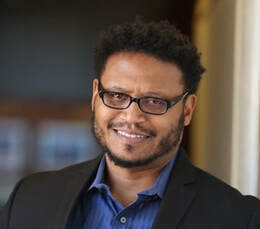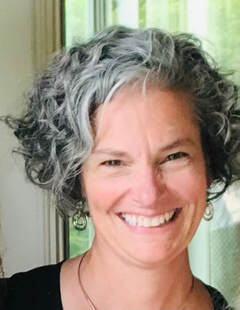
Will McNeil. Will McNeil is a veteran of the U.S. Army, a business executive, and a serial entrepreneur. He’s held multiple senior leadership positions as a Director, Vice President, and Senior Vice President. He has launched/co-founded seven different companies, the first when he was only 8 years old. His professional background spans a twenty-plus-year career in telecommunications, insurance, financial services, automotive, digital media, and technology. He has been a long-time advocate for DEI. Currently, he serves as the CEO of Black Tech Jobs, the fastest growing black tech talent community on the web.

Duncan Wyeth. Born in 1946 and diagnosed with cerebral palsy in 1947, my life experiences are reflected in the significant development of disability programs, services, public policy and advocacy during the last eight decades. As a beneficiary of the post WWII parents movement for disability rights, I have found myself riding the early waves of education inclusion, the independent living movement and Paralympic sports. My engagement with these many life domains have included staff and volunteer roles in secondary and university classrooms, centers for independent living, community rehabilitation organizations and a spectrum of local, state, national and international programs/organizations focusing on the mission of supporting every individual with a disability to achieve his/her full human potential.

Catherine Fowler. Catherine Fowler is co-director for the Office of Special Education and Rehabilitative Services funded technical assistance center - the National Technical Assistance Center on Transition: the Collaborative. NTACT:C supports all state education and vocational rehabilitation agencies in the U.S. Dr. Fowler is also an adjunct instructor at the University of North Carolina at Charlotte and supports technical assistance and research on other U.S. Department of Education funded projects related to transition services. Her career as a practitioner included early intervention service coordination and classroom teaching of students with autism and intellectual disabilities. Her work focuses on the successful, respectful, and meaningful integration of individuals with disabilities in society. She lives outside of Charlotte, NC with her husband, three big dogs, and occasional visits from her college-age daughter.

Dr. Chandra Donnell Carey. Dr. Carey is an Associate Professor of Rehabilitation Counseling in the College of Health and Public Service at the University of North Texas. Her current research interests focus on multicultural responsiveness training in rehabilitation counselor education and practice; health-seeking behaviors of individuals with mental health diagnoses; post-secondary education outcomes for individuals with intellectual disabilities, and integrated care and behavioral health disparities for minoritized communities. Her most recent research projects are investigating the relationship between health insurance assess and outcomes for individuals with COVID-19 and examining stakeholder attitudes and perceptions regarding post-secondary education programs for individuals with intellectual disabilities. She has served as an editorial board member for the Journal of Multicultural Counseling and Development and is the former President for the National Association of Multicultural Rehabilitation Concerns. Dr. Carey is currently co-principal investigator on a federal grant from the US Department of Health and Human Services and a co-principal investigator for a US Department of Education, 4-year, inclusive postsecondary education program at UNT ELEVAR. In 2020, Dr. Carey co-founded the Center for Racial Ethnic Equity in Health and Society (CREEHS) which focuses broadly on health equity research through interdisciplinary scholarship to address social determinants that impact health and quality of life outcomes. She has contributed over 35 refereed publications and book chapters to the literature. She’s received over $8 MIL in grants focused on health-equity and culturally responsive counseling professional development in medically underserved areas. She is the recipient of 7 research and service awards. Her research interests focus on multicultural responsiveness training in rehabilitation counselor education and practice; health-seeking behaviors of individuals with mental health diagnoses; post-secondary education outcomes for individuals with intellectual disabilities, and integrated care and behavioral health disparities for minoritized communities.

Lydia Everheart. Lydia is a transition specialist with the State College School District's Special Education Department, where she has served in this capacity for the past 12 years. In her role as a transition specialist, Lydia provides programming for parents, teachers, and students revolving around the transition areas of independent living, employment, and post-secondary education. Along with programming, Lydia collaborates with many community agencies, businesses, and post-secondary institutions to allow for the extension of transition programming and support for students and families. Lydia's areas of interest are inclusive higher education, mentoring, and employment coaching for students with intellectual and developmental disabilities.
Lydia holds a Bachelor of Science Degree from the Pennsylvania State University in Agriculture and Extension education, a Master of Arts in Education, Special Education from the University of Phoenix, and is currently a doctoral candidate at Slippery Rock University in Special Education and Special Education Supervision.
Lydia holds a Bachelor of Science Degree from the Pennsylvania State University in Agriculture and Extension education, a Master of Arts in Education, Special Education from the University of Phoenix, and is currently a doctoral candidate at Slippery Rock University in Special Education and Special Education Supervision.